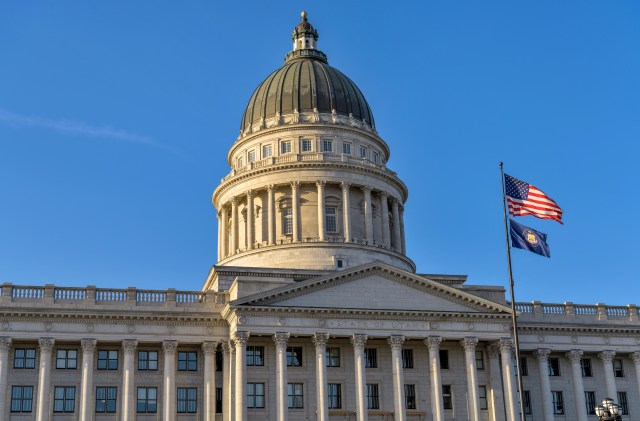
SALT LAKE CITY (ABC4) — Utah lawmakers say they are focused on removing barriers to overcome diversity, but educators and LGBTQ+ leaders say they’re concerned.
In response to HB 257, a bill that would prevent transgender people from using public bathrooms that are different from the sex that is on their birth certificate, some in the community say it could put both trans and non-trans people at risk.
“If you have a slightly masculine-looking woman or an effeminate-looking man, what’s stopping them from being accosted?” asked Samantha Parmley, acting chair of the Utah LGBTQ+ Chamber.
But Utah lawmaker Kera Birkeland said the bill doesn’t target any specific group, claiming it creates privacy for all Utahns.
“Women and men across Utah want privacy,” Birkeland said. “We want to make sure that when people go to private places to do private things, they get just that.”
This is not the only controversial bill passed by the Utah House of Representatives.
HB 261 involves diversity, equity, and inclusion (DEI) programs in education, and would forbid schools from participating in coursework relating to anti-racism, bias, critical race theory, and racial privilege.
“This bill is focused on encouraging all Utahns who overcome adversity through hard work and talent,” said Katy Hall (R), South Ogden.
Representative Angela Romero (D), Salt Lake City, notes, “For me? I’m afraid that we’re erasing people. We’re erasing identities. We’re erasing experiences.”
DEI higher education professional Peter Moosman said there’s a lack of information needed to move something like this forward.
“The sponsor said that they had no information,” said Moosman. “There’s no data to back up the need for a bill like this, and that’s another real big concern.”
Both Parmley and Moosman said they feel legislature is moving too fast. They claim lawmakers need more hands-on experience in what they do on a daily basis to be able to make these kinds of decisions so quickly.
“With the speed in which this legislation is flying through, it’s telling me that the ‘disagree better,’ that coming to the table and working through for solutions is not happening,” Moosman said.
Parmley said she has a challenge for legislature — if they can find one credible incident of a trans person committing any of these crimes that have allegedly committed in a public restroom, and if she cannot find at least a dozen other competing incidents of a trans person being harassed or assaulted in those same spaces, that she will personally come to the House floor.
She notes that she has one condition: “If not, and you’ve taken me up on the challenge, you will do everything in your power to shut down this bill and stop others like it coming up,” Parmley said.
Moosman claimed that these bills could even put students’ lives at risk.
“If we were having these conversations of what DEI looks like, I’m helping students stay alive,” said Moosman. “I’m helping students get food, and remove those barriers that other students might not have to think about.”
Both bills will now move to the Senate before heading to the governor to be signed into law.



